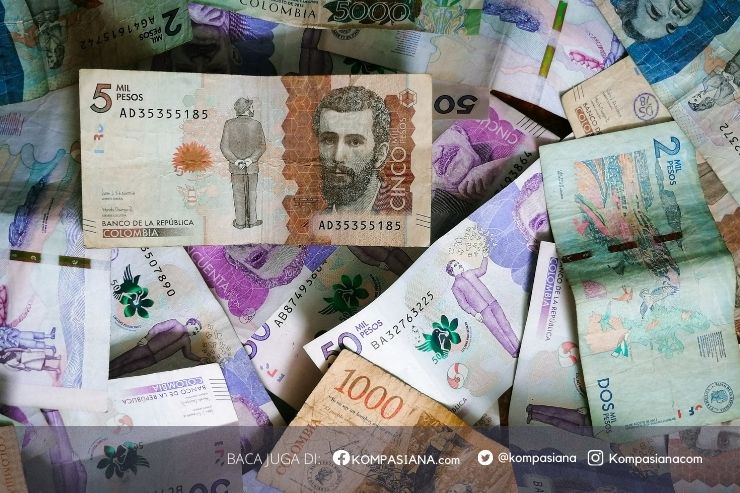Currently the development of information and communication technology continues to progress rapidly. This development makes the pattern of human life changes if we compare with the previous one. One example of such changes we can see in the process of buying and selling. In the past, buying and selling activities are conducted in face-to-face transactions, but now we can do it by doing online-based transactions. This activity is known as e-commerce.
According to the 2016 economic census conducted by Central Bureau of Statistics, the last 10 years the number of e-commerce in Indonesia has increased by 17% with a total business of about 26.2 million (Deny, 2016). Given this rapid growth, the Indonesian government then took the initiative to impose a special tax levy on e-commerce transactions.
In designing this taxation rule the government of course has established discussions with business owners of e-commerce business in the country and with the G20 country associated with foreign online business transactions, so that the rules made can be approved by all parties and not harm one of them. Therefore we need to know the general provisions for taxation on e-commerce transactions and how much tax rates will be charged in accordance with applicable rules.
The tax regulation on online business has been published by the government through Circular Letter of the Director General of Taxation No. SE-62 / Pj / 2013 on Confirmation of Taxation Provisions on E-Commerce Transactions. This Circular Letter contains an affirmation of aspects of the General Provisions and Procedures of Taxation, Income Tax, and Value Added Tax and Sales Tax on Luxury Goods on e-commerce transactions. The tax object of this E-commerce transaction shall be income, ie any additional economic capability received or obtained by a Taxpayer, whether originating from Indonesia or from outside Indonesia, which may be used for consumption or to increase the property of the Taxpayer concerned, by name and in any form.
Another regulated matter concerns the amount of taxable income for domestic taxpayer and permanent establishment. The income is determined based on the total gross income less the cost used to earn, collect, and maintain income. For an individual Taxpayer will be deducted by Non-Taxable Income, and any other costs that may not be deducted in accordance with Article Nine Income Tax Law. In general, the Tax Regulations and Procedures for E-commerce transaction are similar to other tax provisions, such as must have Taxpayer Identification Number, fill out the Notification Letter and so forth.
There are four types of e-commerce business model in Indonesia, namely Online Market Place, Classified Ads, Daily Deals, and Online Retail. Online Market Place is an activity to provide a place of business activities in the form of an internet store as an Online Marketplace Merchant to sell goods or services.
In this transaction model, there is a reward in the form of rent fee or registration fee. In addition, there is a sum of money paid by the Online Marketplace Merchant to Online Marketplace providers as a commission for the services of a sales intermediary. The Classified Ads e-commerce transaction model is the activity of providing a place or time to display advertisements of goods or services performed by advertisers through sites provided by Classified Ads Classifieds.
Then the advertiser pays a sum of money as transaction fee to the Classified Ads provider which is the object of Income and Value Added Tax. Meanwhile, the third model is the Daily Deals similar to the Online Marketplace but the payment instrument used in the form of vouchers. The last model is the Online Retail where the activities of selling goods or services performed directly by the Online Retail provider to the buyer on the Online Retail website (Budi, n.d.).
Although the business model differs from the same tax rate, that is for providers whose income is not subject to final tax, the income tax rate of Article 17 applies to taxable income derived from gross revenue from sales less the cost of obtaining, collecting and maintaining income as well as for an Individual Taxpayer minus Non Taxable Income (Directorate General of Taxation, 2015).
According to the Fiscal Policy Office, the Ministry of Finance is currently preparing the right formula for the implementation of e-commerce tax regulation before it is actually implemented for business actors (Putera, 2018). One thing that takes precedence in the discussion of e-commerce tax according to Sri Mulyani (Minister of Finance) is that there will be waivers for small and medium business actors.
The relief to be applied is for income tax. Finally, he says that about how and who levies taxes, including the process of detail, will be explained further after the new Regulations are officially issued (Putera, 2018). Whatever decisions relating to e-commerce tax regulations that will soon be applied to us as good citizens, especially for those who have e-commerce business must obey the rules and pay taxes on time, because by paying taxes we have contributed in building and advance the state.








